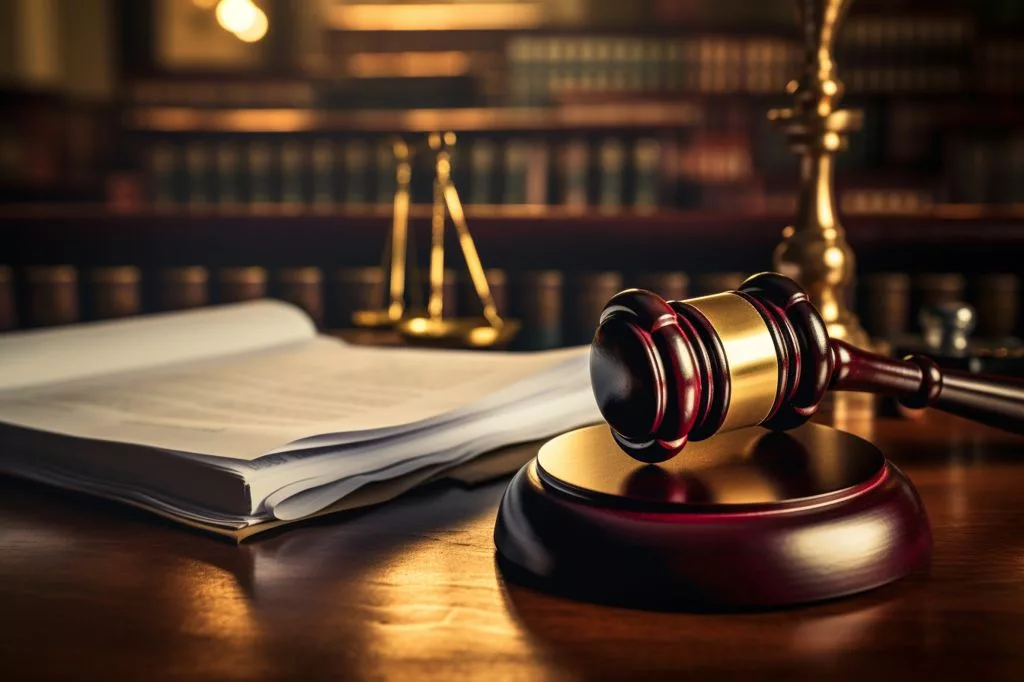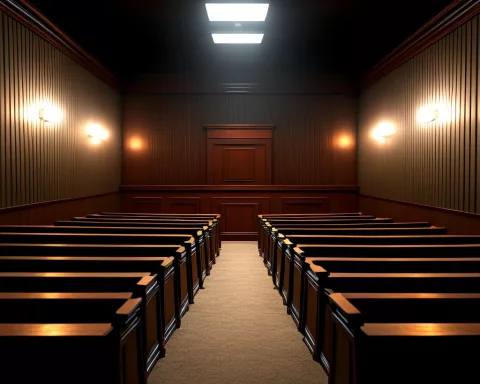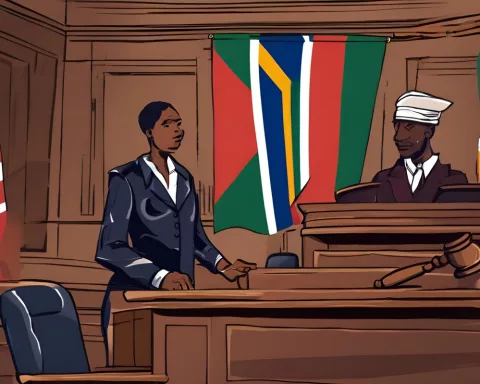The murder trial of South African soccer star Senzo Meyiwa has gripped the nation, with five defendants on trial for premeditated murder, attempted murder, robbery, and possession of firearms. The admissibility of a recorded confession made by one of the defendants is being contested, with the ruling having significant implications for South Africa’s justice system. The trial serves as a critical examination of the balance between the rights of the accused and the pursuit of justice for victims, with the search for truth and justice continuing in the unfolding legal drama.
What is the Senzo Meyiwa murder case about?
South African soccer star Senzo Meyiwa was reportedly killed during a robbery at his girlfriend’s home in Vosloorus in 2014. Five individuals are on trial for premeditated murder, attempted murder, robbery, and possession of firearms. A critical piece of evidence is a recorded confession made by one of the defendants, which is being contested for its admissibility. The ruling on the admissibility of the recording could have substantial implications for the case and South Africa’s legal system.
A High-Profile Trial and a Pivotal Recorded Confession
The murder trial of South African soccer star Senzo Meyiwa has garnered widespread national interest. Central to this legal battle is the admissibility of a critical piece of evidence—a recorded confession made by one of the defendants. This article delves into the complexities of this trial and its implications for South Africa’s justice system.
South Africa was shocked by the tragic death of Senzo Meyiwa, a cherished soccer player. On October 26, 2014, Meyiwa was reportedly killed during a robbery at his girlfriend’s home in Vosloorus. Fast forward to the present, and five individuals—Muzikawukhulelwa Sibiya, Bongani Ntanzi, Mthobisi Prince Mncube, Mthokoziseni Maphisa, and Fisokuhle Nkani Ntuli—are on trial at the Gauteng High Court in Pretoria. The charges include premeditated murder, attempted murder, robbery with aggravated circumstances, possession of firearms without a license, and possession of ammunition. All have pled not guilty.
Judge Ratha Mokgoatlheng presides over this high-stakes trial and faces a crucial decision concerning the admissibility of a recorded confession made by Bongani Ntanzi, the second defendant. Magistrate Vivienne Cronje took down this confession on June 24, 2020, with Ntanzi’s lawyer and an interpreter present. However, neither Ntanzi nor the other parties knew that Cronje had recorded the confession.
The Legal Battle Over the Recorded Confession
Initially, the State indicated that it would not use the recording as evidence. In a surprising turn of events, the State now intends to submit the recording in a trial-within-a-trial, which will examine the admissibility of confessions made by Sibiya and Ntanzi. State Prosecutor Advocate George Baloyi argues that the recording is valid and embodies the principle of best evidence.
Conversely, the defense contests the constitutionality of the recording. Advocate Thulani Mngomezulu, the recently-appointed defense lawyer for Sibiya and Ntanzi, maintains that the recording is unconstitutional because Ntanzi was not informed of his rights and was unaware that he was being recorded. Advocate Zandile Mshololo, defense lawyer for the fifth defendant, supports this view, claiming that Cronje should have explained Ntanzi’s constitutional rights, informed him of the recording, and warned him that it could be used against him in court.
Cronje responds to these assertions by stating that before taking down the confession, she cautioned Ntanzi that he was not obligated to make a statement, as it could be used against him in court, and that he had the right to remain silent. Despite this warning, Ntanzi insisted on confessing.
Witnesses who have testified in court allege that Ntanzi was one of the two intruders who entered singer Kelly Khumalo’s home in Vosloorus the night Meyiwa was killed. Police officer Constable Sizwe Zungu testified that he was with all five defendants at a hostel in Vosloorus the day Meyiwa was shot and killed.
The Implications and the Road to Justice
The ruling on the admissibility of Ntanzi’s recorded confession is of substantial importance. If Judge Mokgoatlheng decides in favor of the State, this evidence could be crucial in obtaining convictions for the defendants. Conversely, if the defense successfully argues the recording’s unconstitutionality, the case may be weakened, and justice might be harder to achieve.
The Senzo Meyiwa murder trial is not merely a quest for justice for a single individual. It serves as a critical examination of South Africa’s legal system, showcasing the delicate balance between the rights of the accused and the pursuit of justice for victims. The ruling on the admissibility of Ntanzi’s recorded confession will likely set a precedent that could impact future cases.
Despite the heated debates and intricate legal arguments, one fact remains evident: Senzo Meyiwa’s murder was a devastating loss not only for his loved ones but for the entire nation. As the trial progresses, the pursuit of justice and the search for truth continue, with all eyes closely monitoring the unfolding legal drama.
1. Who is on trial for the murder of Senzo Meyiwa?
Five individuals—Muzikawukhulelwa Sibiya, Bongani Ntanzi, Mthobisi Prince Mncube, Mthokoziseni Maphisa, and Fisokuhle Nkani Ntuli—are on trial for the premeditated murder of South African soccer star Senzo Meyiwa.
2. What are the charges against the defendants?
The charges against the defendants include premeditated murder, attempted murder, robbery with aggravated circumstances, possession of firearms without a license, and possession of ammunition.
3. What is the contested evidence in the trial?
The admissibility of a recorded confession made by one of the defendants, Bongani Ntanzi, is being contested.
4. What is the State’s argument for the admissibility of the recording?
The State argues that the recording is valid and embodies the principle of best evidence.
5. What is the defense’s argument against the recording’s admissibility?
The defense maintains that the recording is unconstitutional because Ntanzi was not informed of his rights and was unaware that he was being recorded.
6. What is the potential impact of the ruling on the admissibility of the recording?
The ruling on the admissibility of Ntanzi’s recorded confession could be crucial in obtaining convictions for the defendants. It may also set a precedent that could impact future cases.
7. What is the broader significance of the Senzo Meyiwa murder trial?
The trial serves as a critical examination of South Africa’s legal system, showcasing the delicate balance between the rights of the accused and the pursuit of justice for victims.
8. What is the status of the trial?
The trial is currently ongoing at the Gauteng High Court in Pretoria, with Judge Ratha Mokgoatlheng presiding over the case.












